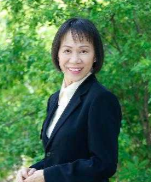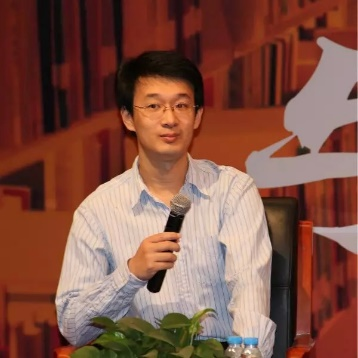
Speakers

Prof. Budsaba Kanoksilapatham
Faculty of Management Science, Silpakorn University, Thai
Brief: Budsaba Kanoksilapatham, an eminent luminary, attained her Ph.D. in Linguistics (concentration: Applied Linguistics) from Georgetown University in the United States. Currently, as an erudite full-time professor of English at the Faculty of Management Science at Silpakorn University, she embodies a consummate dedication to her vocation.Furthermore, Dr. Kanoksilapatham adorns the distinguished post of associate fellow at the prestigious Academy of Arts, the Royal Society of Thailand. Her outstanding accomplishments have garnered her an array of coveted accolades, among others, notably including the illustrious titles of "Distinguished Researcher of Silpakorn University" and "TRF Senior Research Scholar in English." Both accolades were graciously bestowed upon her by the esteemed patronage of Her Royal Highness Princess Maha Chaksri Sirindhorn on two distinct occasions. Dr. Kanoksilapatham's awe-inspiring achievements, coupled with her profound dedication to scholarly pursuits, serve as a resplendent and indelible tribute to her unwavering quest for, and commitment to, academic excellence.

Assoc. Prof. Jianfei Luo
College of Sinology and Chinese Studies, Beijing Language and Culture University, China
Brief: Jianfei Luo, PhD and Master's supervisor at Beijing Language and Culture University. Associate professor at the College of Sinology and Chinese Studies, Beijing Language and Culture University, researcher at the Institute of Zhang-Huang Academic Theories, Faculty of Linguistic Sciences, and editor of the Academic Journal Studies in Prosodic Grammar. The main areas of research are prosodic syntax, register grammar, and International Chinese Education, publishing over 20 papers in CSSCI and EI index journals such as Language Teaching and Linguistic Studies, Linguistic Sciences, Chinese Language Learning, TCSOL Studies, and Chinese Lexical Semantics.
Title:A Study on the Semantic Acquisition of Chinese Monosyllabic and Disyllabic Corresponding Verbs
Abstract:In modern Chinese, there are a large number of corresponding forms of monosyllabic verbs and disyllabic verbs with similar meanings, which are called monosyllabic and disyllabic synonyms (MDS for short). They are opposite in semantic, syntactic and register attributes, which is also the difficulty for foreign students to learn. Based on the opposition between the core sememes of MDS, this paper investigates and analyses the acquisition of MDS by foreign students by questionnaire. The results show that the higher the Chinese level of foreign students is, the better the acquisition of MDS is. Different core sememes affect the difficulty of acquiring MDS. This paper suggests that teachers should have register awareness and emphasize the opposition between MDS verbs in semantics, syntax and register attributes when speaking and practicing them, so as to reduce the occurrence of related errors.